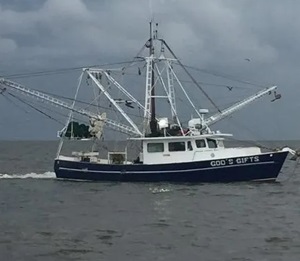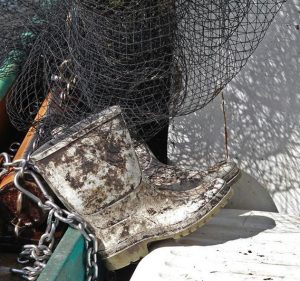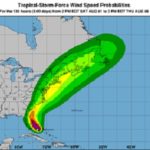Tag Archives: Louisiana Shrimpers

Testing finds mostly foreign shrimp at Louisiana Shrimp & Petroleum Festival
Genetic testing of seafood served at the recent Louisiana Shrimp and Petroleum Festival in Morgan City found four out of five vendors evaluated were serving foreign shrimp passed off as local. The testing was performed at the five-day festival over the Labor Day weekend by Sea D Consulting, a food safety tech company that recently developed a rapid seafood species identification test. Company owner Dave Williams of Houston said local shrimpers in Louisiana invited him to Morgan City to try out his technology at the festival, first held in 1936 and where attendees would expect to find local catch. Williams said he purchased plates of boiled shrimp from five of the roughly 12 seafood vendors at the event, asking each where the shrimp was caught. All five vendors assured him their shrimp came from Louisiana waters, he said. more, >>CLICK TO READ<< 06:46
As Terrebonne recovers from Francine, some residents worry about its future
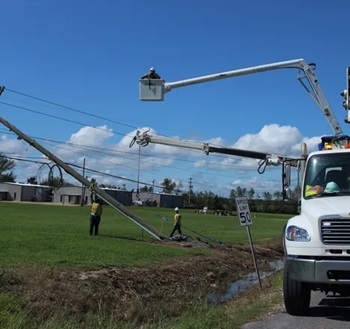 Recovery efforts continued Thursday in Terrebonne Parish, where thousands remained without electricity a day after Hurricane Francine made landfall there. While the Category 2 storm brought less severe property damage than recent storms, it left some residents with greater worries for the area’s future. Among them is Terrebonne Parish Councilwoman Kim Chauvin, who spent much of the day looking for and clearing clogged storm drains. One of the few remaining shrimpers in Louisiana, Chauvin and her family operate shrimp boats, a fuel and ice dock, a shrimp processing plant and seafood shop. Her home and businesses lost power when the storm approached, and she was still without electricity as of 8 p.m. Thursday. Entergy Louisiana reported less than 22,000 of its customers in Terrebonne Parish were powerless as of 7 a.m. Friday. more, >>CLICK TO READ<< 09:23
Recovery efforts continued Thursday in Terrebonne Parish, where thousands remained without electricity a day after Hurricane Francine made landfall there. While the Category 2 storm brought less severe property damage than recent storms, it left some residents with greater worries for the area’s future. Among them is Terrebonne Parish Councilwoman Kim Chauvin, who spent much of the day looking for and clearing clogged storm drains. One of the few remaining shrimpers in Louisiana, Chauvin and her family operate shrimp boats, a fuel and ice dock, a shrimp processing plant and seafood shop. Her home and businesses lost power when the storm approached, and she was still without electricity as of 8 p.m. Thursday. Entergy Louisiana reported less than 22,000 of its customers in Terrebonne Parish were powerless as of 7 a.m. Friday. more, >>CLICK TO READ<< 09:23
Louisiana Shrimp Association reacts to proposed act that aims to help industry
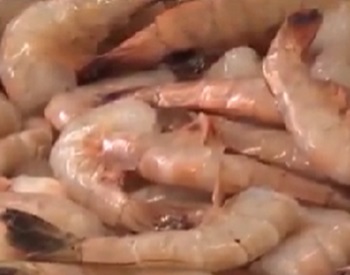 Louisiana Shrimp Association President Acy Cooper has worked tirelessly to be a voice for Louisiana shrimpers whose livelihoods have been derailed by imported products. After hearing about the introduction of the Save Our Shrimpers Act of 2024, he is hoping this can be a step in the right direction for the once thriving industry. If passed, the act would prohibit federal funds to international financial institutions subsidizing foreign activity relating to shrimp farming, processing or exporting to the United States. Video, more, >>CLICK TO READ<< 07:46
Louisiana Shrimp Association President Acy Cooper has worked tirelessly to be a voice for Louisiana shrimpers whose livelihoods have been derailed by imported products. After hearing about the introduction of the Save Our Shrimpers Act of 2024, he is hoping this can be a step in the right direction for the once thriving industry. If passed, the act would prohibit federal funds to international financial institutions subsidizing foreign activity relating to shrimp farming, processing or exporting to the United States. Video, more, >>CLICK TO READ<< 07:46
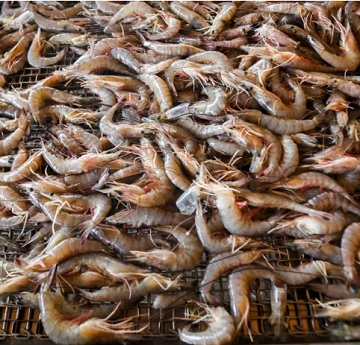
Letter: Pleas for help from Louisiana shrimpers fall on deaf ears
The Louisiana shrimp industry is in crisis; putting our 15,000 jobs and $1.3 billion industry at risk. During the legislative session, hundreds of shrimpers, dock owners and processors marched on the State Capitol to call out unwanted competition from imported shrimp. Louisiana plays a significant role in the U.S. shrimp market, accounting for 25% of the nation’s demand. But imports from Thailand, Vietnam, Indonesia and Ecuador are flooding U.S. markets, resulting in distressed prices for our product. >click to read< 08:06
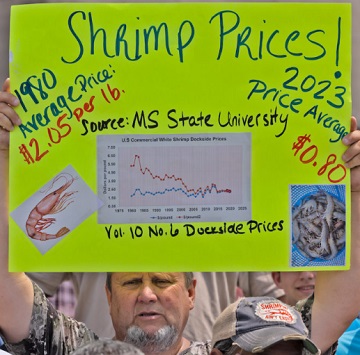
Louisiana shrimpers are worried imports will sink them for good
It’s the start of brown shrimp season in Louisiana, and instead of a fleet of boats heading out to trawl nearby waters, fishermen have gathered like an armada at the Louisiana State Capitol to tell lawmakers that the industry is in dire straits. Hundreds of longtime shrimpers tied up their boats and held a rally at the Capitol in recent weeks in a rare show of unity from all factions of the volatile shrimping industry. Shrimpers, dock owners, and processors have for decades pointed fingers at each other for driving prices down. But now, they’re all protesting against the unwanted competition affecting their livelihoods: imported shrimp. Photos, >click to read< 16:34
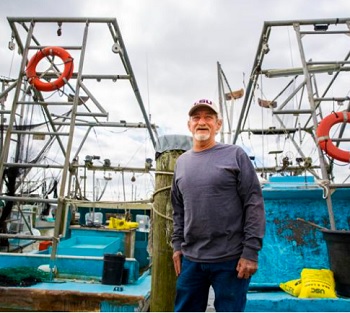
As seafood sales rise for Lent, Louisiana shrimpers say their industry is in trouble
With Lent elevating sales of crawfish, fish and shrimp across Louisiana, many local fishermen and shrimpers say they aren’t benefitting. “We’ve been here a long time, and yet we’re just going to get shoved out of the way. When importers come in and start buying cold storage and start buying infrastructure, we’re going to lose our way of life, and Louisiana is going to lose a lot. They’re more at stake than anybody because we’re known for our seafood. That’s why people come to Louisiana is for our seafood and for our culture,” said Acy Cooper, the president of the Louisiana Shrimpers Association. >click to read< 12:02
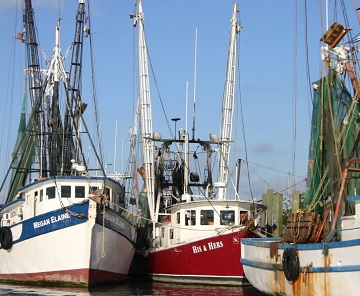
Louisiana denounces federal rule for shrimp boats at Fifth Circuit
The small shellfish are big business in Louisiana with 15,000 residents employed in the industry, which has an annual economic impact of $1.3 billion for the state, according to its Seafood Promotion and Marketing Board. But Louisiana shrimpers who followed their fathers and grandfathers into the trade say it is dying as wild-caught and farm-raised imports from Thailand, Vietnam, Indonesia and India into the U.S. have exceeded 1 billion pounds annually in recent years. Since 1987, the National Marine Fisheries Service has required shrimp trawlers in some circumstances to install turtle excluder devices, which separate sea turtles, sharks and other large bycatch so they can escape through an opening in the netting. >click to read< 09:52
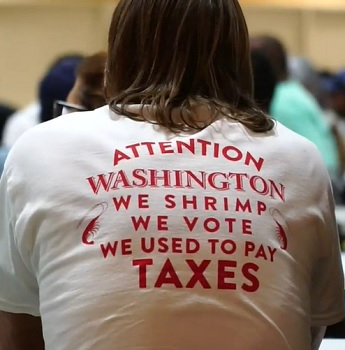
Louisiana shrimpers call for legislators to take action, cap shrimp imports
“We have begged and pleaded for years and years and years for help, and we’ve been shunned, disregarded, ignored continuously,” said Captain Kip Marquize. “No longer can a blind eye be turned to our cause, it just cannot happen any longer. We will be completely extinct.” The Louisiana Shrimp Association held a “State of the Industry” meeting in Cut Off on Tuesday, with the goal of gathering as many shrimpers as they can to call on legislators to take action. “We have coasts that are just full of shrimp, we have processors that can’t sell shrimp, we have docks that can’t get rid of them,” said Acy Cooper, President of the Louisiana Shrimp Association. “We have people that just can’t go out because they can’t get rid of the shrimp, and there’s no need for that.” Video, >click to read< 10:09

Louisiana Shrimpers want lobbyist to help voice their concerns in Washington
The Louisiana Shrimp Association is fighting back against imported shrimp and their goal is to save their livelihood. They want their voices to be heard in Washington D.C. and in Baton Rouge. President of the L.S.A., Acy Cooper, said they have had a lot of issues in the industry. “The prices went from four dollars a pound down to a dollar twenty. It is getting dyer need. We have been screaming and hollering. This task force has been together since two thousand and ten. We can’t get anybody in Washington to do the job that we need.” >click to read< 07:49
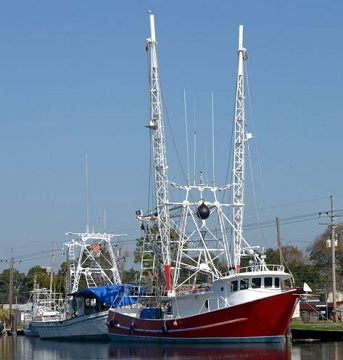
A Double Whammy: Louisiana shrimpers face high diesel prices, cheap imports
Record high diesel prices and competition from cheap, imported shrimp are hitting Louisiana shrimpers in the wallet and driving some of them out of business. Acy Cooper Jr. is a shrimper in Plaquemines Parish and the president of the Louisiana Shrimp Association. “Here in Louisiana, you can make a little bit of a living if you catch a few shrimp. We’re in between seasons now and once the shrimp starts slowing up, you can’t continue working at that price. A lot of folks are going to try to keep working, but once they see they can’t overcome it,” Cooper said of high fuel prices, “they’re going to shut down.”>click to read the article< 18:54
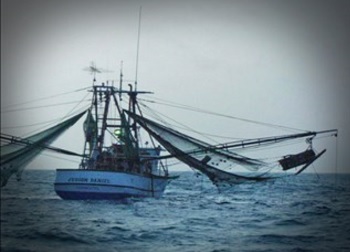
Coronavirus: Louisiana Shrimpers Uncertain of the Future
The seafood industry in Louisiana has seen highs and lows throughout the years.,, The ongoing competition from imported seafood and natural disasters have always been hurdles Captain AC Cooper and his family have had to navigate through, but now with the surplus of shrimp due to COVID-19 he’s unsure of the future. Acy said, “You just can’t get rid of the product that you normally get rid of because of the restaurants being closed and we went through lent but we still didn’t get rid of the excess. It’s hard to say that you don’t know what’s going to happen tomorrow and we don’t, and that’s very scary.” >click to read< 08:31
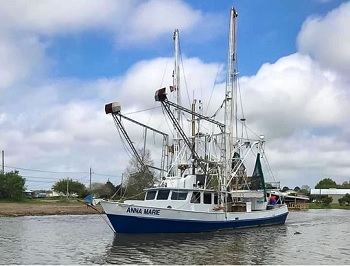
‘Another punch in the gut’: Gulf Coast shrimpers navigate the coronavirus crisis
Shrimping is a hard business. Gulf Coast shrimpers, who bring in three quarters of the nation’s catch, have been battered with waves of bad luck. Hurricanes. A flood of cheap imports. The BP Deepwater Horizon oil spill in 2010. Fresh water diversions that kill seafood. And now the coronavirus. Restaurants buy 80% of both imported and domestic shrimp, according to the Southern Shrimp Alliance. With restaurants closed or offering only takeout, no one is buying much shrimp. Next month would typically launch the peak of shrimp season as Gulf states begin their annual opening of nearshore waters to shrimping. >click to read< 07:45
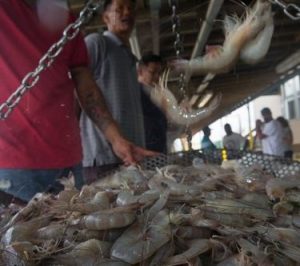
Louisiana shrimpers avert strike but their catch hits all-time low
Louisiana shrimpers are getting a little more money for their catch – but a lot less of a catch. The summer has been a roller coaster for the state’s shrimp industry. Last month, shrimpers threatened to strike if prices continued their steep decline, reaching levels early this year that hadn’t been seen since the 1980s. But a slight uptick – about a nickel more per pound of shrimp – placated many shrimpers. “It pacified them from doing anything,” Acy Cooper, a Venice shrimper and president of the Louisiana Shrimp Association, said Thursday (Sept. 6). “They’re kind of good with it, but not good with it, if you know what I mean.” >click to read<12:49

Louisiana shrimpers consider strike as prices plummet
Louisiana shrimpers vowed this week to go on strike if shrimp prices take yet another tumble. About 200 shrimpers gathered in Houma on Wednesday (Aug. 8) to vent their frustrations about foreign imports that have driven shrimp prices to levels not seen since the 1980s. They also fumed over a lack of political support for tariffs and other measures that could shore up an industry they say is heading toward extinction. “We can’t make it on cents. We need dollars,” said Dean Blanchard, a Grand Isle shrimp distributor. “There’s no way this can continue.” >click to read<21:59
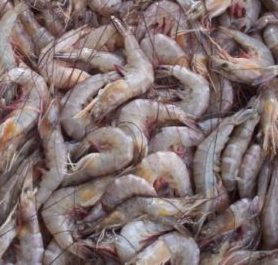
Take shrimper’s concerns seriously
Fourteen years ago Louisiana shrimpers joined those from other Gulf states and pooled their money — along with processors and dock owners — to pay millions of dollars in legal fees to bring a case for tariffs to the U.S. Department of Commerce and the International Trade Commission. The punitive tariffs that were approved, after this costly battle, were the result of findings that China and other nations were dumping shrimp into the U.S. at a below-market price or subsidizing the industry in some nations. The tariffs did some good but not enough. There is ample proof that shrimp were routed through other countries not contending with tariffs to defeat the process. The result has been more shrimp often raised in unsanitary farms and containing chemicals banned in the European Union but allowed in certain thresholds at U.S. docks. >click to read<17:01
Louisiana Shrimpers – Big hauls, little profits caused by imported shrimp
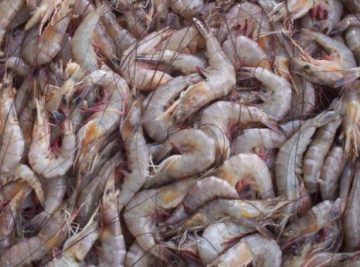 When Lance Nacio recently walked into a Fresh Market grocery store, he made a beeline for the seafood as he always does. He found that only one type of shrimp was local out of the nine varieties. Nacio started work as a commercial fisherman in 1997. Changes in the industry affect his livelihood so the fact that 93 percent of shrimp is imported or farmed hurts his business. Nacio is one of 5,500 licensed shrimpers in Louisiana alone, according to the Louisiana Department of Wildlife and Fisheries. The first shrimping season of the year opened Monday and local fishermen said their early hauls are full of large white shrimp and average brown shrimp, but the imported shrimp hurts the prices regardless of the local quality. “Import shrimp is a lot of what drives global price,” said Nacio, who was recently featured on a Dr. Oz segment about imported shrimp. “We’re not considered a specialty anymore. We’re more of a commodity.” Read the story here 17:08
When Lance Nacio recently walked into a Fresh Market grocery store, he made a beeline for the seafood as he always does. He found that only one type of shrimp was local out of the nine varieties. Nacio started work as a commercial fisherman in 1997. Changes in the industry affect his livelihood so the fact that 93 percent of shrimp is imported or farmed hurts his business. Nacio is one of 5,500 licensed shrimpers in Louisiana alone, according to the Louisiana Department of Wildlife and Fisheries. The first shrimping season of the year opened Monday and local fishermen said their early hauls are full of large white shrimp and average brown shrimp, but the imported shrimp hurts the prices regardless of the local quality. “Import shrimp is a lot of what drives global price,” said Nacio, who was recently featured on a Dr. Oz segment about imported shrimp. “We’re not considered a specialty anymore. We’re more of a commodity.” Read the story here 17:08
Louisiana shrimpers encouraged to provide input regarding potential shrimp fishery regulation changes
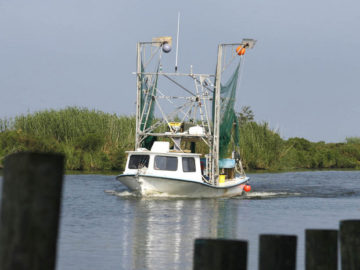 Louisiana commercial shrimpers are encouraged to provide their input regarding potential changes to existing shrimp fishery regulations. NOAA NMFS is considering new regulations citing new information that sea turtles are vulnerable to capture by skimmer trawls and that tow times may not be as effective in reducing bycatch-related mortality as turtle excluder devices. NOAA is currently receiving input from fishermen and other constituents on this issue. Comments can be sent electronically via email to [email protected], or physically via U.S. mail to Michael Barnette, Southeast Regional Office, Protected Resources Division, 263 13th Ave. South, St. Petersburg, Fla. 33701-5505 until April 29, 2016. The NOAA Scoping Document can be found here. Scoping document, click here 14:24
Louisiana commercial shrimpers are encouraged to provide their input regarding potential changes to existing shrimp fishery regulations. NOAA NMFS is considering new regulations citing new information that sea turtles are vulnerable to capture by skimmer trawls and that tow times may not be as effective in reducing bycatch-related mortality as turtle excluder devices. NOAA is currently receiving input from fishermen and other constituents on this issue. Comments can be sent electronically via email to [email protected], or physically via U.S. mail to Michael Barnette, Southeast Regional Office, Protected Resources Division, 263 13th Ave. South, St. Petersburg, Fla. 33701-5505 until April 29, 2016. The NOAA Scoping Document can be found here. Scoping document, click here 14:24
Louisiana Shrimpers Look To Technology To Increase Profits
 Bobby and Christine Lovell are shrimpers in St. Bernard Parish. It’s hard work and in the past they never knew how much money they were going to make. “A lot of people struggled last year with the price of the shrimp and they are still struggling today because the price… is so low,” says Lovell. Last year they decided to invest thousands of dollars into new technology for their boat. They bought a new flash freezer with the help of some grants. Much of the good shrimping happens in the fall, and last fall they were able to freeze their shrimp right away, so they could sell it whenever. Read the article here 07:08
Bobby and Christine Lovell are shrimpers in St. Bernard Parish. It’s hard work and in the past they never knew how much money they were going to make. “A lot of people struggled last year with the price of the shrimp and they are still struggling today because the price… is so low,” says Lovell. Last year they decided to invest thousands of dollars into new technology for their boat. They bought a new flash freezer with the help of some grants. Much of the good shrimping happens in the fall, and last fall they were able to freeze their shrimp right away, so they could sell it whenever. Read the article here 07:08
Shrimp: a Little Creature’s Big Impact by Matt Rhoney
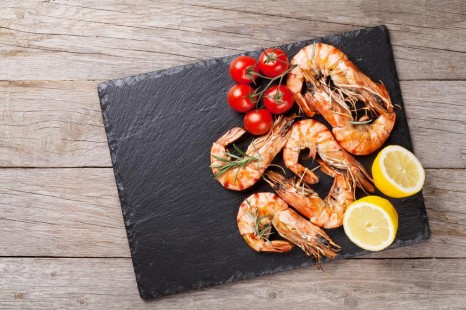 Shrimp has had a wide-ranging set of influences on the United States. This buggy little sea-creature has brought cash flow into our economy, nutrients into our bodies, and life into our culture. No matter where you live, you’ve definitely felt their impact. The next time you think of shrimp, remember the outsized impact of these pint-sized crustaceans. Economics: For huge populations of people, particularly those living in maritime climates, shrimp are more than cute critters; they’re a main source of livelihood. In Louisiana, fishermen landed around,,, Read the rest here 17:09
Shrimp has had a wide-ranging set of influences on the United States. This buggy little sea-creature has brought cash flow into our economy, nutrients into our bodies, and life into our culture. No matter where you live, you’ve definitely felt their impact. The next time you think of shrimp, remember the outsized impact of these pint-sized crustaceans. Economics: For huge populations of people, particularly those living in maritime climates, shrimp are more than cute critters; they’re a main source of livelihood. In Louisiana, fishermen landed around,,, Read the rest here 17:09
Louisiana shrimpers, fishermen rally for changes to federal seafood import regulations
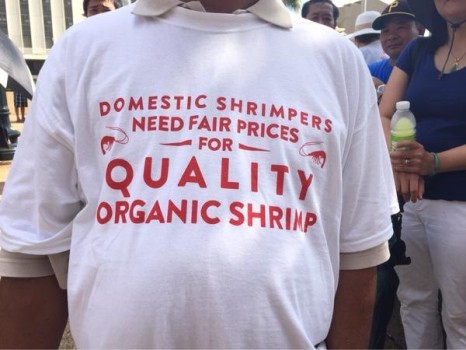 Local shrimpers and fisherman say the U.S. government’s poor regulations on importing seafood has been affecting their livelihoods, and they need things to change soon before they say an industry that has thrived for generations in Louisiana is destroyed. “The saddest part that I see is that the younger generations has to go somewhere else to get a job. We have some fishing families that are six generations,” said George Barisich, a board member of the Louisiana Shrimp Association. Read the rest here 12:31
Local shrimpers and fisherman say the U.S. government’s poor regulations on importing seafood has been affecting their livelihoods, and they need things to change soon before they say an industry that has thrived for generations in Louisiana is destroyed. “The saddest part that I see is that the younger generations has to go somewhere else to get a job. We have some fishing families that are six generations,” said George Barisich, a board member of the Louisiana Shrimp Association. Read the rest here 12:31
Louisiana shrimpers are hopeful action by Congress can help reduce illegal shrimp imports
“Today, the Louisiana seafood industry is being hammered by illegal foreign imports that are destroying jobs and distorting the market here at home, making it tougher for Louisiana seafood to compete in our own markets. That’s wrong,” said U.S. Rep. Charles Boustany, R-Lafayette. Shrimpers across the state have voiced their support for Boustany’s bill, called the Preventing Recurring Trade Evasion and Circumvention Act, or PROTECT Act. Read the rest here 08:26
Louisiana shrimping: Lower prices this year and rise in imported shrimp
 Louisiana State University researchers say Louisiana shrimpers face lower prices this year with an expected rise in imported shrimp. The Daily World reports that imports last year were hit by a virus called Early Mortality Syndrome, or EMS. But this year imports are re-entering the market and that is expected to drive prices down. Julie Anderson-Lively, assistant professor at Louisiana State University’s AgCenter, said a lot of imports were killed off last year and never entered the market. Read the rest here 13:00
Louisiana State University researchers say Louisiana shrimpers face lower prices this year with an expected rise in imported shrimp. The Daily World reports that imports last year were hit by a virus called Early Mortality Syndrome, or EMS. But this year imports are re-entering the market and that is expected to drive prices down. Julie Anderson-Lively, assistant professor at Louisiana State University’s AgCenter, said a lot of imports were killed off last year and never entered the market. Read the rest here 13:00
Louisiana shrimp catch in September largest since 2003
 Louisiana shrimpers caught more shrimp in September than any other September since 2003, according to federal fisheries estimates released this week. Shrimpers caught 7.9 million pounds of shrimp, the largest on record for the month since the 8 million pounds landed in 2003. Read the rest here 20:40
Louisiana shrimpers caught more shrimp in September than any other September since 2003, according to federal fisheries estimates released this week. Shrimpers caught 7.9 million pounds of shrimp, the largest on record for the month since the 8 million pounds landed in 2003. Read the rest here 20:40
Some Louisiana shrimpers say they’re going on strike over low prices.
 “Opening day of the May season we got $2.70 for 40-50s,” shrimper Warren Delacroix of New Orleans said, discussing one common size of shrimp. “Right now they are $1.35 at some of the docks.” Association leaders said shrimpers will tie up their boats for a week or longer to allow the association to negotiate with processors. Read the rest here 16:10
“Opening day of the May season we got $2.70 for 40-50s,” shrimper Warren Delacroix of New Orleans said, discussing one common size of shrimp. “Right now they are $1.35 at some of the docks.” Association leaders said shrimpers will tie up their boats for a week or longer to allow the association to negotiate with processors. Read the rest here 16:10
Louisiana Shrimpers wait idly for waters to reopen
 South Louisianans may have felt a warm breeze sweeping in off the Gulf of Mexico earlier this week. Call it a godsend or a late arrival, shrimp fisherman are hoping that warm southerly wind is here to stay. One of the coldest winters on record has dampened the growth of Louisiana’s inland brown shrimp. Read more here 08:14
South Louisianans may have felt a warm breeze sweeping in off the Gulf of Mexico earlier this week. Call it a godsend or a late arrival, shrimp fisherman are hoping that warm southerly wind is here to stay. One of the coldest winters on record has dampened the growth of Louisiana’s inland brown shrimp. Read more here 08:14
High prices, low hauls: Louisiana shrimpers battle for the bottom line – “Everybody is scrambling,”
 The price of Gulf of Mexico shrimp has soared this year, the beneficiary of a malady that has beset the competing Asian shrimp farm market and some U.S. sanctions on unfair trade practices elsewhere. But for many shrimpers, a scarcity of product in the Gulf this year has made the suddenly higher prices seem an empty victory. more@towntalk 07:57
The price of Gulf of Mexico shrimp has soared this year, the beneficiary of a malady that has beset the competing Asian shrimp farm market and some U.S. sanctions on unfair trade practices elsewhere. But for many shrimpers, a scarcity of product in the Gulf this year has made the suddenly higher prices seem an empty victory. more@towntalk 07:57
Shrimpers across south Louisiana say they are ready for today’s start of the white shrimp season.
 About 60 percent of the shrimp harvested in the U.S. comes from the Gulf of Mexico. The total domestic shrimp harvest brought in $518 million in 2011. Today’s opening date was based on recommendations presented by state Wildlife and Fisheries biologists and comments from the public. more@houmatoday
About 60 percent of the shrimp harvested in the U.S. comes from the Gulf of Mexico. The total domestic shrimp harvest brought in $518 million in 2011. Today’s opening date was based on recommendations presented by state Wildlife and Fisheries biologists and comments from the public. more@houmatoday






